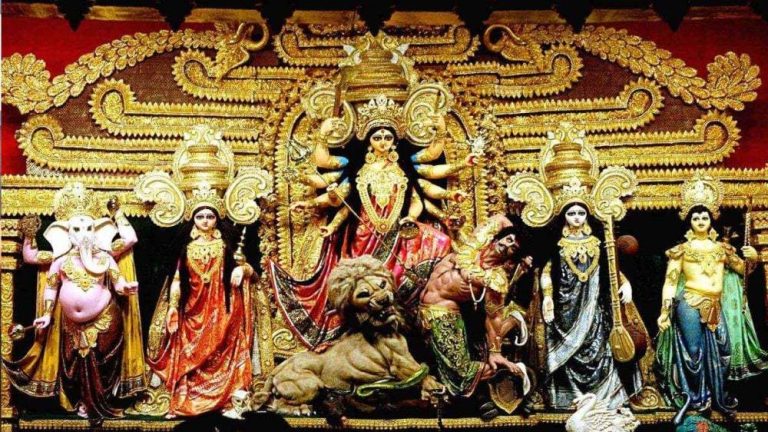Shiva is Also Known as “Shmashana Adhipati”, Because He Roams the Cremation Ground, Know More About It
Shiva is considered to be Lord of Shmashana or Shmashana Adhipati. One epithet for Shiva is “inhabitant of the cremation ground”, referring to this connection.
Kali, his consort is known by another name Shmashana Kali.
Once Shiva and Parvati while in Kailasa had a heated argument. An angry Parvati asked Shiva to leave Kailasa as it was her house. Shiva immediately came out of Kailasa, but realised he did not have a place to go.
While Shiva was lost deep in his thoughts about where to go, Narada who was passing by saw him. He approached Shiva and asked him what had happened. Shiva explained to him what had happened and his predicament.
On hearing this, Narada said to him that he should go to the cremation ground as it was the best place to stay as there is no one there to disturb him. Shiva also realized that it was true and decided to go there. Once there he applied ash to his body and started meditating. Thus, Shiva came to be known as Smashana Vaasi( Resident of the graveyard).
Shiva is referred to as the destroyer not because he wants to destroy you. He is waiting at the cremation ground so that the body is destroyed, because until the body is destroyed, people do not realize what death is.
Why Shiva stays inthe Cremation Ground?
Lord Shiva, a prominent deity in Hinduism, is often depicted residing in burial grounds or cremation grounds. This unique representation of him holds profound symbolism and offers insights into the deeper meaning and spiritual significance behind Lord Shiva’s choice of abode. By exploring the reasons behind Lord Shiva’s association with cremation grounds, we can have a better understanding of the philosophical and metaphysical aspects of this portrayal.
The Triumph over Attachment: Lord Shiva’s dwelling in burial grounds signifies his mastery over attachment and material desires. The burial ground, being a place associated with the finality of life, serves as a reminder of the impermanence of the physical form and the transient nature of worldly possessions. By residing in this environment, Lord Shiva epitomizes the ultimate renunciation of attachment and emphasizes the importance of focusing on spiritual growth and inner realization.
Transcendence of Life and Death: As the deity associated with destruction and transformation, Lord Shiva’s presence in the burial ground signifies his transcendence of life and death. The burial ground represents the realm of mortality, and by residing there, Shiva reminds us of the cyclic nature of existence. He stands as a symbol of the eternal soul that transcends the boundaries of birth and death, offering solace and guidance in the face of mortality.
Confronting Fear and Ignorance: Burial grounds are often associated with fear, darkness, and the unknown. Lord Shiva’s choice to stay in such a place represents his fearlessness and his willingness to confront the deepest aspects of human existence. By residing amidst the ashes and bones, Shiva teaches us to overcome our fears and embrace the darker facets of life, encouraging spiritual seekers to venture into the unknown and attain enlightenment.
Liberation and Dissolution: The burial ground holds significance in the process of liberation and dissolution. Lord Shiva’s presence in this realm represents his role as the liberator who helps the departed souls transition to higher realms. It symbolizes the dissolution of the ego and the ultimate union with the divine. By residing in the burial ground, Shiva acts as a guide, supporting souls in their journey towards liberation and spiritual transformation.
Meditation and Self-Realization: Burial grounds are places of stillness and solitude, conducive to deep meditation and introspection. Lord Shiva, often depicted in a meditative posture, signifies the pursuit of self-realization amidst the transient nature of life. By choosing the burial ground as his abode, he encourages seekers to seek inner stillness, contemplate the mysteries of existence, and ultimately attain spiritual enlightenment.






